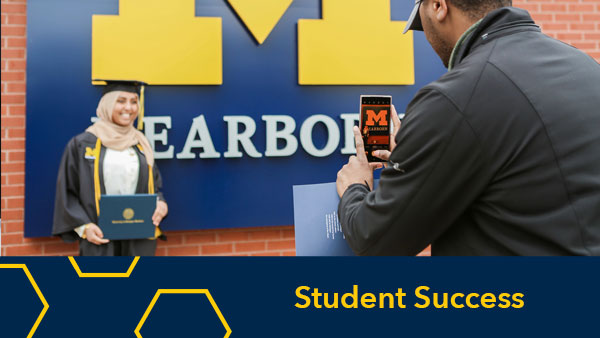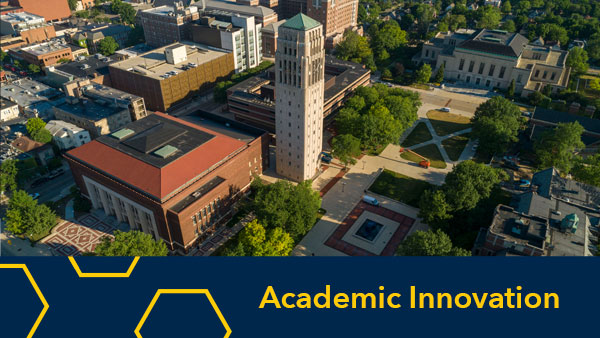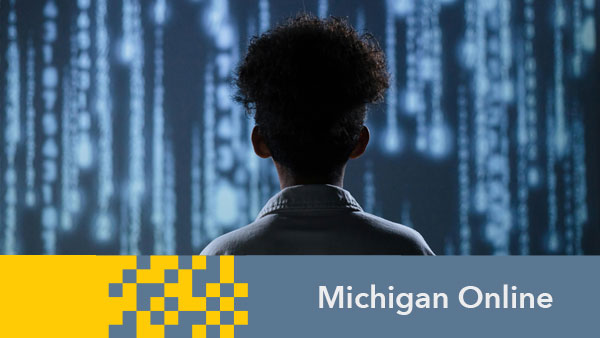James Hilton, Vice Provost for Academic Innovation and Dean of Libraries
James DeVaney, Associate Vice Provost for Academic Innovation
@devaneygoblue
A new academic term, a bicentennial, and many reasons for optimism.
Education is the greatest transformative invention the world has ever known. It changes the lives of individuals and it changes the quality of human existence for the better. At the same time it is possible, perhaps almost inevitable, to assume that the future of higher education is dim at best. After all, the headlines are filled with various forms of higher education “crises.” Whether it’s concerns about student debt, declining public support, technology pressure, regulatory pressure, changing demographics, or global competition, it’s clear that the definition and aims of higher education are up for grabs. Where academics and their institutions used to be seen as key ingredients in solving the world’s wicked problems, today both our relevance and motivations are frequently questioned. Twenty years ago, for example, it’s hard to imagine anyone questioning whether an undergraduate degree was worth the price of admission. Today, despite all evidence to the contrary, the norm is to question the value of a degree. In two decades, we have gone from a default position that favors personal and societal investment in higher education to a default position that is suspicious of the probable return. It is easy to despair.
So why are we optimistic?
The very conditions that are giving rise to a pervasive sense of crisis are the same conditions that we see pointing to a new renaissance for institutions and individuals who are willing to experiment, learn and evolve. After all, the technology pressures that threaten to disrupt also hold the promise for a more personalized approach to teaching and learning. Global competition in higher education shouldn’t be a narrative grounded in loss, it should be about opening doors and connecting with students around the world who would never otherwise make their way to Ann Arbor. The focus on career preparation and the reality of a rapidly changing labor market doesn’t force us to reframe education as simply about vocation. It gives us opportunities to connect with lifelong learners in ways that are more meaningful and impactful than ever before. It gives us the opportunity to be a constant presence in people’s journeys towards the things that matter to them–including stewardship, resources, complex and enlightened habits of mind, and the pursuit of happiness.
 At the dawn of our University’s bicentennial, we are inspired. We see a past worthy of celebration, a present we can challenge, and a future that is unwritten and filled with possibility. We see a unique combination of history, mission, and culture that invite us to imagine again the education that is possible at the great public research university.
At the dawn of our University’s bicentennial, we are inspired. We see a past worthy of celebration, a present we can challenge, and a future that is unwritten and filled with possibility. We see a unique combination of history, mission, and culture that invite us to imagine again the education that is possible at the great public research university.
Last term, President Schlissel launched a new initiative focused on Academic Innovation. From it’s inception, the goal of the initiative has been to launch a series of experiments and activities in order to learn by doing on the way to developing transformative recommendations for our future.
Not surprisingly, our community responded enthusiastically and is deeply engaged in these experiments and activities. To name a few:
- We officially opened our third MicroMasters program on January 24th, a new and innovative collaboration between the School of Education and the Carnegie Foundation for the Advancement of Teaching. In the fall we launched MicroMasters programs with the School of Information and School of Social Work, respectively;
- We began a second stage of work with Elisabeth Gerber from the Gerald R. Ford School of Public Policy to continue building the digital, hands-on, role-playing simulation tool called Policymaker;
- We began working on a MOOC with Arun Agrawal on Governing Sustainability with a start date that will coincide with the launch of the new School for Environment and Sustainability;
- We are creating five new MOOCs on topics related to social impact with faculty from the School of Music, Theatre & Dance, the School of Social Work, the School of Education, the School of Natural Resources and Environment, and the Ross School of Business that will launch in May;
- We welcomed Problem Roulette, and a partnership with August Evrard from College of Literature, Science, and the Arts, as the latest digital tool to enter the Digital Innovation Greenhouse;
- We are partnering with Richard Nisbett from the College of Literature, Science, and the Arts to create a new MOOC on Critical Thinking for the Information Age;
- We launched the Gameful Learning Lab, and have built a course on gameful learning that will be available to the world in March.
In activities like these, our faculty see new connections between scholarship and the classroom. Our students see new opportunities to take advantage of our intellectual diversity. Our alumni see new porous pathways to continue their Michigan educations throughout their lifetimes. Our public constituents see new ways to participate with the University. Together we are tapping into the breadth and scale of this vibrant community to focus on big problems that don’t fit neatly into a single discipline.
As we look ahead, we start to see some convergence of opportunity around a number of themes:
 Unbundling the curriculum from disciplines and rebundling around problems most important to society
Unbundling the curriculum from disciplines and rebundling around problems most important to society- Leading a public effort to design and implement the transcript of the future
- Expanding efforts around gameful learning to reimagine a broader range of learning environments beyond courses
- Reimagining relationships with lifelong learning alumni and pre-college learners
- Leveraging our curriculum and expertise, and new technologies, to enhance our ability to engage with the public
- Expanding upon engaged learning activities and further tipping the scales toward active student participation in content creation, problem solving, and doing
- Developing a deeper understanding of where students learn on campus and how we can best nurture that learning
- Establishing incentives that encourage faculty to invest time in educational R&D
- Extending our leadership role in learning analytics
- Exploring a framework for real-time teaching experiments
This academic term is also bursting with activity. Please join us for innovation hours, design jams, and other events this term that aim to engage faculty, students, staff, and alumni in our community-wide conversation about the future of higher education at U-M. We will continue to identify and start new experiments as we go.
Against what might seem like impossible odds given the tenor of the conversations about higher education, we see clear signs that point to a new renaissance for those institutions that are willing and able to experiment, rethink, and imagine again. We stand at the precipice of a new model of education that is more inclusive, scalable, and personalized. We hope you’ll join the discussion by participating in events, sharing an idea for the future, and/or proposing a new experiment.
 Unbundling the curriculum from disciplines and rebundling around problems most important to society
Unbundling the curriculum from disciplines and rebundling around problems most important to society

